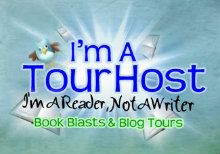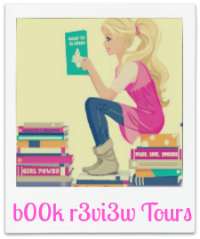It's not about the war. It’s about the warrior.
Publication Date: March 6, 2016
Genre: Military Non-Fiction
Meet eight combat-injured men who sustained life-altering injuries. Read eight inspiring stories of heroism and the re-building of independent, productive and fulfilling lives after seemingly impossible circumstances.
This project looks at the struggles of these incredible men to reshape their lives after combat. It also sets these stories within the context of current veteran healthcare; injury, suicide, and disability statistics; and looks briefly at the impacts on the caregivers who support these men. Being face-to-face with combat-injured veterans has given me an insight that all Americans should have. Veterans of the Vietnam era began the process of opening our eyes to the grim realities that await veterans both psychologically and physically. These men’s stories show how much more we have to accomplish.
This book isn't about war or politics - it is about figuring out what it takes to move forward AFTER the war. I wrote this book to raise awareness of what our warriors need most when they return, what the government does and doesn't provide and why there is a high demand for private non-profits to fill the gaps. Make no mistake - we are in this period of recovery and rehabilitation for decades to come. It also introduces the non-profit organization Warrior Foundation~Freedom Station which has taken on the task of helping our combat-injured men and women make the daunting transition from military to civilian life. 100% of the proceeds benefit them in this much-needed labor of love.
It's not about the war. It’s about the warrior.
100% of the proceeds benefit Warrior Foundation~Freedom Station.
GoodReads
R.J. Belle began writing as a teenager as a way to express her creative side. In 2013 she made the jump into writing for publication. R.J. left her career to write full time and within three months published her first Fiction Novel, First One Down: A Paul Sutton series novel. With a new stunning cover and additional editing First One Down is set to re-release in April 2016. Book two in the Paul Sutton series, Second Sight, will release summer 2016.EXCERPT
“I
thought if I would just hang out in town they could not find me and
inform me my son had been killed. As it turned out they did find me
and the nightmare began.”
“The
last thing I heard was, ‘Don't step there,’ and then a loud
boom.”
“A
few minutes later when they came back the corpsman got out of the
truck, silent, covered in blood. I never processed that until after I
got home. I just sat there, and I knew that it had happened but at
the time it just didn’t feel real. That night was a solemn night.
No one talked to each other. It woke us all up. Before that we had
just been screwing up the Taliban. But now, it was like, oh – we
died here – like you can die here.”
“I
don’t know what the answer to the suicide epidemic is - I wish I
knew. I just don’t understand it. I’ve lost so many people that I
have become emotionless to death. I guess that’s part of the deal
for a lot of us.”
“Now
we just try to figure out how to do the same things we used to do –
the same things people without missing limbs can do. It’s not that
we can’t do it – it’s just that we have to figure out a
modified way to do it. Everything we do is just a little bit harder.”
“I
do this because some woman, somewhere, might pick up an article or a
book and read this, and she might be at the end of her rope. Maybe
she will read this and think her life isn’t so bad. Maybe she will
read this and know she can go on, too.”
“My
biggest fear is and will continue to be the what-ifs. What if he
can’t get back up next time? What if he, too, becomes a statistic?
What if I fail him? I believe that is a worry for many of us – the
caregivers and the wives of war. War isn’t selective of its
victims, and it doesn’t mind sharing its devastation. War is far
reaching, and its ripple effect can range far beyond the
battlefield.”
“Every
combat veteran who makes it home unscathed thinks back to the ones
who didn't come home or the ones who came back physically different.
We feel that it should have been us instead. I blamed myself for a
few things and had some dark thoughts for a long time; I couldn't
even talk to the Marines I had treated for injuries. The invisible
wounds are the hardest, and I know that each one of us struggle to
deal with that in our own way.”
R.J. released her first non-fiction project in 2016 - AFTER: The Battle Has Just Begun. After explores the daunting task of physical and emotional recovery and rehabilitation for eight combat-injured men and the private non-profit that assisted in all eight transitions.
R.J. lives in Southern California with her family.













0 comments:
Post a Comment